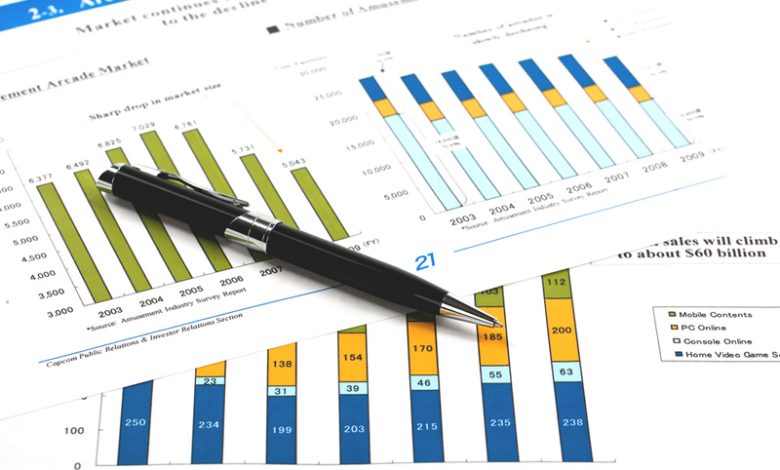
Wall Street Concerns: Harris Tax Plan Could Impact US Corporate Profits, According to Reuters
By Carolina Mandl and Tatiana Bautzer
NEW YORK – Wall Street is bracing for potential impacts on corporate earnings and the stock market if Democratic presidential candidate Kamala Harris secures the presidency in November and follows through with proposed tax increases.
Tax policy has become a significant topic of interest for investors leading up to the election on November 5. With Republican candidate and former President Donald Trump and Harris locked in a tight race, wealth advisers report an uptick in inquiries from investors seeking strategies to navigate possible changes in tax legislation.
“Tax policy is a huge concern for investors,” stated Yung-Yu Ma, chief investment officer at BMO U.S. Wealth Management, noting that clients across the nation are seeking clarity on anticipated tax hikes. "This is a central issue in this election."
Wall Street’s primary focus is on potential changes to corporate earnings and capital gains taxes. During his presidency, Trump reduced the corporate tax rate from 35% to 21%, and recently expressed support for lowering it further to 15% for companies manufacturing goods in the U.S.
Conversely, Harris has proposed raising the corporate tax rate to 28%, arguing that “big corporations should pay their fair share,” as she asserts many are currently taxed at lower rates than teachers, nurses, and firefighters.
Analysts at Goldman Sachs have indicated that under Harris’ proposed tax rate, corporate earnings could face a 5% decline, while Trump’s suggested reduction might increase earnings by approximately 4%.
Ma emphasized that increased taxes could lead to decreased corporate profits and lower stock valuations, cautioning investors about the possibility of a significant market pullback.
It’s important to note that any changes to tax laws would require congressional approval. Trump’s campaign has claimed Harris’ tax strategy would result in a substantial increase in the national debt. They did not provide commentary on how Trump’s proposals might affect fiscal deficits.
The Harris campaign has criticized Trump’s proposals, highlighting that they would primarily benefit "billionaires and big corporations."
CAPITAL GAINS
Another point of investor concern revolves around Harris’ plan to increase the capital gains tax—applied to profits from asset sales held for over a year—for individuals earning more than $1 million, proposing a rate of 28%. This is lower than President Biden’s suggested rate of 39.6%. Trump, however, has not put forth plans to adjust the current maximum of 20%.
Brian Gardner, chief Washington policy strategist at Stifel, remarked that historical trends show capital gains tax increases often underperform in generating revenue for the government, but added that such changes could broadly negatively affect the market, though quantifying the exact impact remains uncertain.
Morgan Stanley noted that the statistical relationship between capital gains taxes and stock market performance is weak, although the ongoing tax debate could introduce volatility into equity markets in the near term. A wealth management executive from a large bank suggested that if capital gains taxes rise significantly, investors would likely employ more aggressive tax-minimization strategies.
OVERALL ECONOMIC IMPACT
From a market perspective, Trump’s presidency is viewed as a potential driver of inflation and an increase in the federal budget deficit, which could lead to greater Treasury debt issuance.
Bruce Mehlman, a partner at Mehlman Consulting, observed that projections indicate Trump could elevate deficits more considerably than Harris.
“Businesses and corporations generally favor lower taxes," Mehlman stated, acknowledging a widespread awareness that a debt crisis looms on the horizon.
Goldman Sachs has suggested that a Democratic victory in both the White House and Congress would yield the most significant economic growth over the next two years. They argue that new federal spending and tax credits for middle-income households would slightly outweigh declines in investment due to higher corporate tax rates.
Goldman also predicts that economic output could decline under a Republican administration next year, largely because of Trump’s proposals for increasing import tariffs and enforcing stricter immigration policies.
INDIVIDUAL TAXES
Next year, portions of the Tax Cuts and Jobs Act, enacted by Trump in 2018, are set to expire. While this law provided tax reductions for both corporations and individuals, it disproportionately benefited wealthier households and large corporations.
Trump aims to extend these tax cuts and has proposed replacing personal income taxes with tariffs. In contrast, Harris has indicated she would maintain the tax cuts for individuals earning less than $400,000 annually.
Nicole Webb, senior vice president at Wealth Enhancement, noted that the impending expiration of certain tax provisions is a prevalent concern among clients. "This issue is at the forefront of many people’s minds," she remarked.
 GOOGL
GOOGL  META
META 


